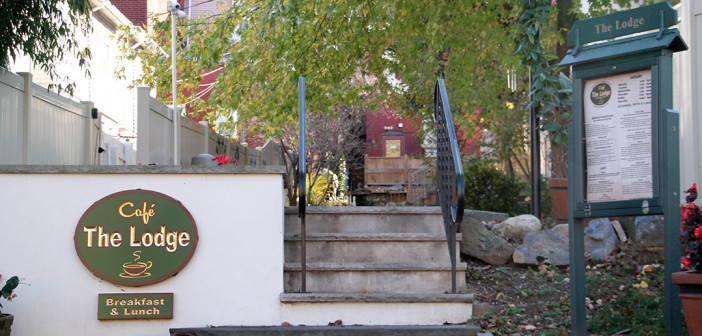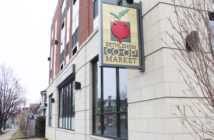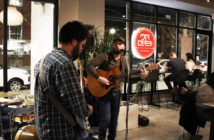It’s lunch time on a Thursday afternoon and every table in Café the Lodge is full.
Lehigh students and staff, a table of nurses from St. Luke’s and several locals fill the dining room with a buzz of lunchtime conversation. A chipper, attentive waitress asks how patrons are enjoying their meals and if she can get them anything. Looking around the café it seems like a regular restaurant. It’s only upon deeper look that patrons would realize the staff all have a mental health diagnoses.
“People find out what the Café is and say, ‘Oh I never would have guessed,’” said Ian Panyko, the assistant director of The Lodge.
There are always at least two employees working the cash register and making food at all times. The employees only work four-hour block shifts, which Panyko says is because stamina is a big issue with mental health patients, because a lot of psychiatric medicines are exhausting since most anti-psychotics tend to be tranquilizer-based.
Café the Lodge only employs people with mental health diagnoses because they are funded by Northampton county.
“The idea is to show people that just because someone has a mental health diagnosis, it doesn’t mean they aren’t going to be successful and doesn’t mean they aren’t capable,” Panyko said. “When we’re really busy you’ll see people who came out of Allentown State Hospital that are moving around cooking food and chatting with customers.”
Panyko said the idea is the employees would be able to get jobs somewhere else after working at the café for a while. He also said that the program is currently trying to determine the next step to take when employees could go on to work elsewhere, but are happy working at the café.
One employee, Pam Lockhoff, says the program changed her life. Lockhoff has been a part of the Lodge program for seven months and works as a barista in the Café.
“The program here opened doors to so many things in my life,” she said.
Lockhoff suffers from depression and anxiety. She said that the staff at The Lodge helped introduce her to resources in the community that she had been unaware of prior to coming to the program. She had been an operating room trauma nurse for twenty years until she retired a few years ago.
“I love my job,” Lockhoff said. “Now I’m just so comfortable with people and have a very positive attitude. I really like myself and that shows to people.”
Lockhoff has had a difficult time over the past two and a half years. She said that she had reached a point where she couldn’t stand herself anymore and tried to commit suicide last October. The Lodge and its community, however, barista job included, helped Lockhoff get to a place where she felt she was once again the deserving and worthy member of society.
“Just being with the people around and working here, it’s hard to explain how much joy it brings me because it’s done so much for my life,” Lockhoff said.
Café the Lodge opened in 2012 at its East Fourth Street location to help finance the Lodge housing and support program.
Every penny spent at Café the Lodge is reinvested in creating an environment of recovery and wellness. The program was started after then-director Aaik Van Munster applied to receive funding after the Allentown State Hospital closed in late 2010.
“It was determined at that time that everything was kind of shifting away from that type of model into a more community-based recovery model,” Panyko said.
The Lodge program is run by Resources for Human Development, a nonprofit based out of Philadelphia with more than 160 programs across 14 states. Panyko explained the Lodge model is recovery based and that the individual with a mental health diagnoses, known as a consumer, has the right and ability to guide his or her own recovery. The purpose of the Lodge is to provide local housing and vocation or education for the consumers in order to provide a stable place to help them recover.
In addition to weekly shopping trips and Dual Recovery Anonymous meetings, the members of the community can participate in a packed calendar of events, including crafting, open mic nights and spoken word events. Panyko said that it is important that these services are offered because most of the time similar events are only offered at bars and that there are strong ties between addiction and mental illnesses, which is why offering a safe and sober community is so vital for the recovery of those in the program.
Open six days a week, the café with a cause hopes to grow to a point where the entire program can be one day funded by its own profits.
“There was always this mentality of, ‘This is what we’re doing regardless of whether or not we have experience, we’re just doing it.’ And that’s really what’s driven the Lodge so far,” Panyko said.






Comment policy
Comments posted to The Brown and White website are reviewed by a moderator before being approved. Incendiary speech or harassing language, including comments targeted at individuals, may be deemed unacceptable and not published. Spam and other soliciting will also be declined.
The Brown and White also reserves the right to not publish entirely anonymous comments.